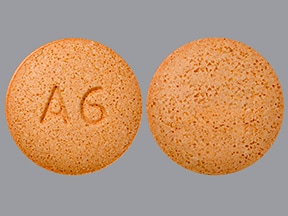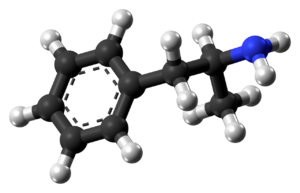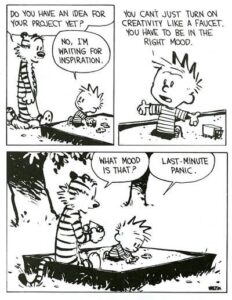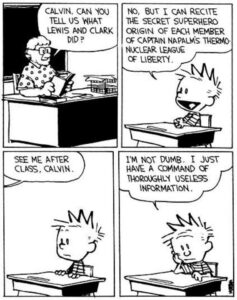A month and a half ago, I posted about the beginning of my ADHD treatment journey. A couple weeks later, I posted an update, detailing my mixed results with Strattera (Atomoxetine).
 So, a little more than two weeks ago, I talked with my prescriber about my experiences. I essentially told her everything that I put in my previous article: on the whole, it gave me more good days and fewer bad days, but it didn’t really make either of them better. She was very understanding, and was willing to move me onto another medication. I told her about a medication that my pharmacy was able to get (and I knew that because a friend of mine was on it), and she prescribed me an orally-dissolving formulation of Amphetamine, the same medication that is found in Adderall. After a brief delay with insurance (they required a prior authorization, but the drug manufacturer offers a coupon program that makes it $50 per month without insurance, so we opted to skip the insurance claim), they were able to order the medication and I picked it up the next day. The day after that, I was going out of town for the weekend with my family, so after forgetting to take either medication for a day, I took my first dose of Adzenys XR-ODT.
So, a little more than two weeks ago, I talked with my prescriber about my experiences. I essentially told her everything that I put in my previous article: on the whole, it gave me more good days and fewer bad days, but it didn’t really make either of them better. She was very understanding, and was willing to move me onto another medication. I told her about a medication that my pharmacy was able to get (and I knew that because a friend of mine was on it), and she prescribed me an orally-dissolving formulation of Amphetamine, the same medication that is found in Adderall. After a brief delay with insurance (they required a prior authorization, but the drug manufacturer offers a coupon program that makes it $50 per month without insurance, so we opted to skip the insurance claim), they were able to order the medication and I picked it up the next day. The day after that, I was going out of town for the weekend with my family, so after forgetting to take either medication for a day, I took my first dose of Adzenys XR-ODT.
 On that first day, we were driving home from our weekend trip, and I immediately noticed that there was a significant difference in my awareness while I was driving. Usually I have to make regular stops, drink lots of caffeine, or have an active conversation in order to not feel drowsy or distracted when driving for long distances; but on that day I just didn’t need any of those coping mechanisms. I experienced no side effects, and I didn’t feel like I wasn’t myself. I also didn’t have the same “warm brain” feeling I did with Strattera.
On that first day, we were driving home from our weekend trip, and I immediately noticed that there was a significant difference in my awareness while I was driving. Usually I have to make regular stops, drink lots of caffeine, or have an active conversation in order to not feel drowsy or distracted when driving for long distances; but on that day I just didn’t need any of those coping mechanisms. I experienced no side effects, and I didn’t feel like I wasn’t myself. I also didn’t have the same “warm brain” feeling I did with Strattera.
The next day at work, I was pleased to discover a decent improvement in attention, focus, and executive function; the very things I was missing with the previous medication. I also appreciated that the Extended Release nature of the medication means that boosts seem constant throughout the workday, rather than wearing off over time. The overall effect wasn’t to the level I wanted it to be (and in fact it still isn’t), but I do feel like I’m in the right medication family; now I just need to dial in the dosage, and monitor my blood pressure. Over the past two weeks, I’ve been pleased with the improvements I’ve experienced in those areas, as well as the huge reduction in my time blindness; it’s much more rare for me to be surprised that it’s “already 3:00 in the afternoon.”
Maybe the biggest thing I’ve been surprised about in this ADHD journey is the different facets there are to the seemingly-simple word “attention.” Before beginning this process, I thought it was just one thing; and while they are interconnected, what I thought was just “attention” is actually a combination of alertness, focus, motivation, executive function, energy levels, mood, temporal perception, memory, and cognition (and there may be more, but those are the ones I’ve noticed so far). Some coping skills and treatments have improved some of these facets and not others; and deficiencies in some of them are problems during the workday while others are a problem in my family life. Do note, these are not medical or psychological terms, but here’s briefly what I mean by each:
- Alertness: My ability to remain aware of my surroundings for a long period of time, particularly when they’re “boring” or when I’m focused on something else. This is different from energy levels.
- Focus: My ability to concentrate on one task, conversation, text, line of code, etc. Most often a problem at work.
- Motivation: My desire to do things, even things I enjoy doing. Closely tied to executive function, but not exactly the same thing.
- Executive function: My ability to start or switch tasks, or make decisions. This deficit is usually either called laziness or decision fatigue.
- Energy levels: My capacity for continuing a task or interpersonal interaction. This is heavily affected by but not completely controlled by sleep.
- Mood: The thing I have the least problem with. I know a lot of people experience anxiety or depression with their ADHD, but I’ve never really had trouble with that.
- Temporal Perception: The deficit of this is called “time blindness.” I’m notoriously bad at estimating time (past or future), and before medication I almost always had a moment—usually at around 3pm—where I think “Whoa, it’s [whatever time] already?!”
- Memory: I’ve never had a particularly strong memory. Or, more precisely, I’ve never had a particularly strong ability to recall important information, despite being able to remember irrelevant data almost instantly.
- Cognition: My ability to process information. I’ve historically not had as much trouble with this mental function as with some of the others.
Since I’m seeing improvement in a lot of these areas, I’m really excited to see how this particular part of my journey progresses. I’m looking forward to seeing if a dosage increase helps me perform at the level I want to be able to perform at.
But of course, I’ll continue to talk about it here. I continue to be staggered by all of the people who have been interested in—or even helped by—my documenting this experience; thank you again for your kind words of support, and I hope that people continue to be helped by these posts. Please let me know if there’s anything that you’re concerned or curious about; I’d love to share more, and I appreciate your presence with me on this journey.




